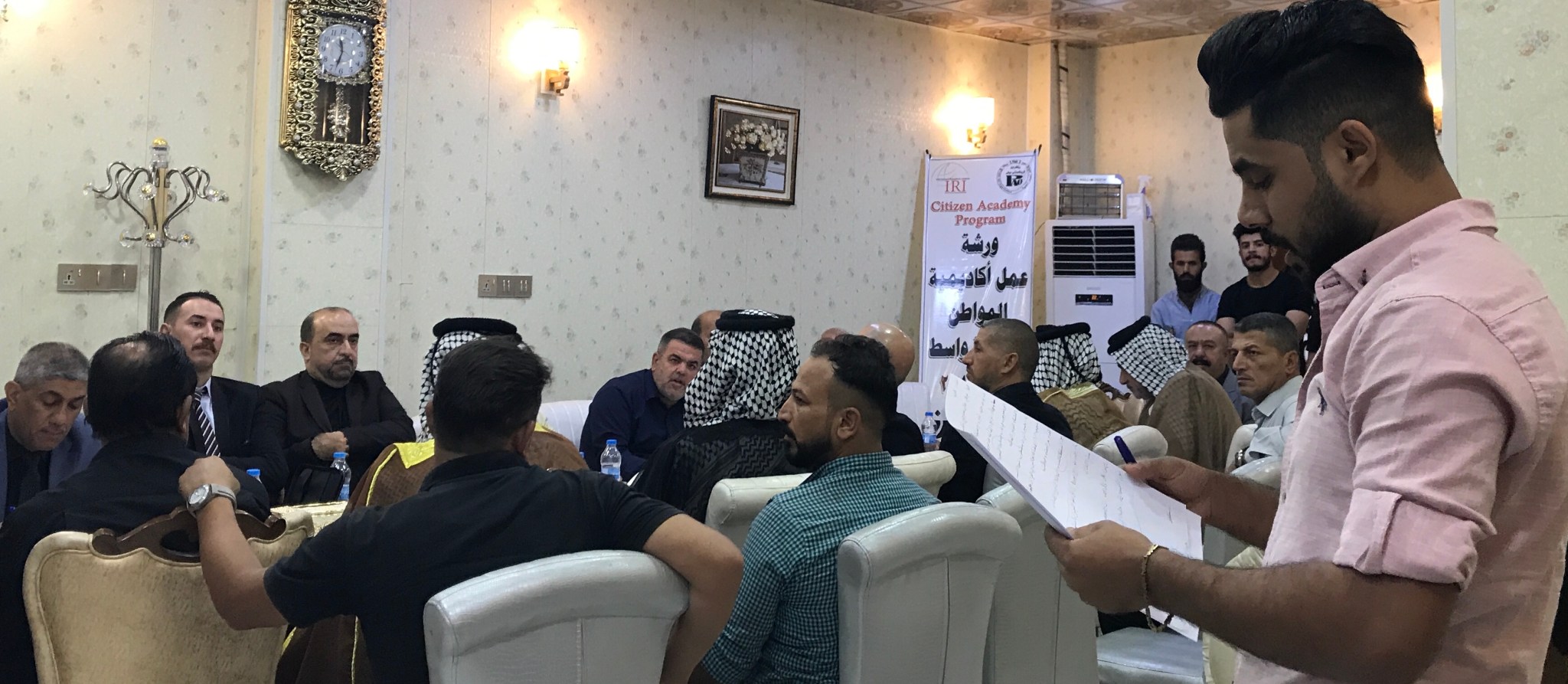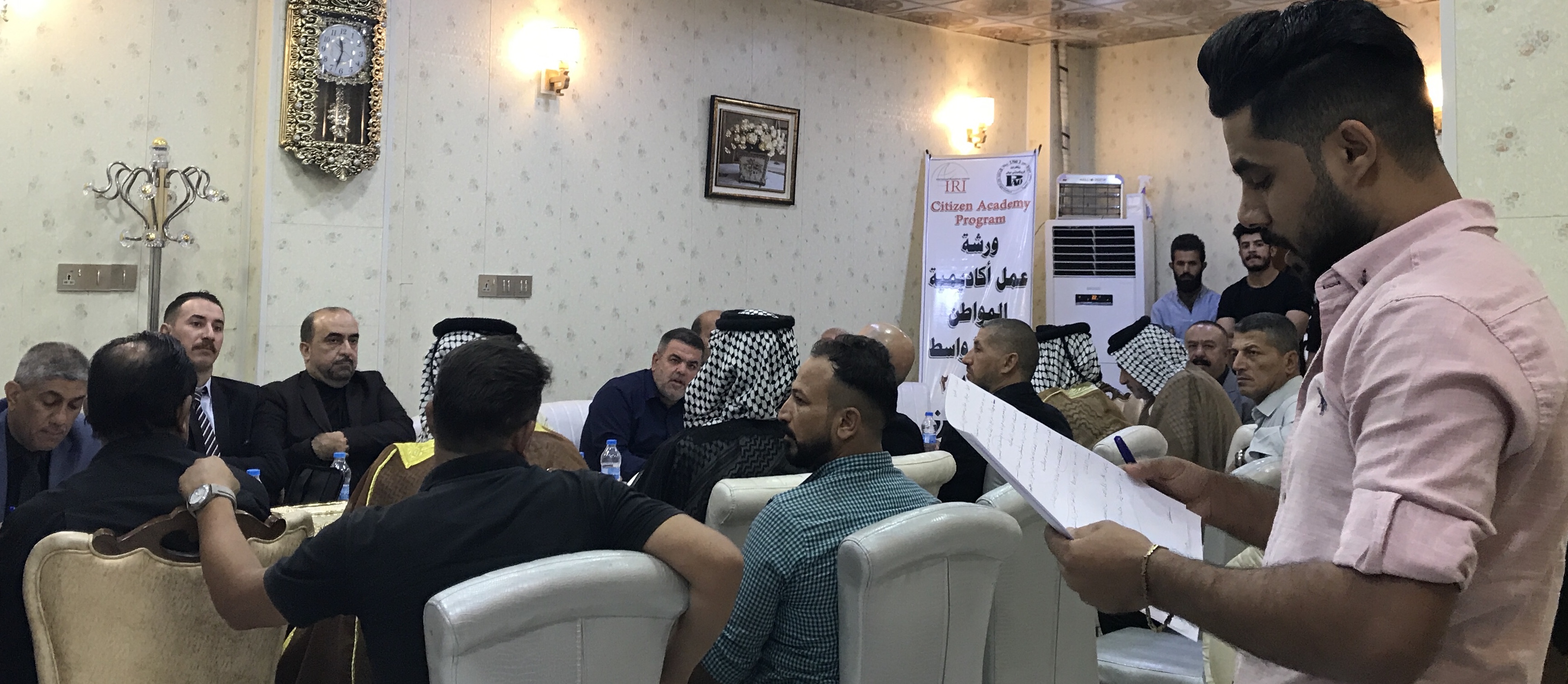
Throughout Iraq, as in many countries, infrequent and ineffective communication between citizens and government creates a gap which contributes to a lack of trust, little understanding of government priorities and the perception that government officials are not interested in meeting citizens’ needs.
This trust gap in government institutions supports narratives that Iraq is divided and disincentivizes civic participation. Narratives around the May 2018 parliamentary elections both demanded ‘new faces’ as a result of this lack of trust while also strongly called for Iraqis to boycott the polls in order to send a message to the political class. Nearly eight months after the elections, the new government continues to struggle to finalize governing bodies throughout ministries and the legislature.
What is the solution?
No one solution will repair the underlying social contract that needs to exist between a democratically elected government and its constituents, but localized efforts can begin to make a change. Through Citizen Academies, a tool employed by provincial and local governments to increase transparency about government decision-making and performance, Iraqis learn more about the role of their local representatives, understand the decisions and budget of the government and present petitions directly to influence both.
Throughout 2018, Citizen Academies held by five provincial governments in Iraq engaged in mutual dialogue between councils and citizens to facilitate citizens’ abilities to present their proposals and suggestions as well as educate about the role and responsibilities of provincial councils. Citizen attendees noted that they better understood the role of the provincial council, specifically what authorities they have and their legislative mandate, stressing that these meetings are a step in the right direction to establishing trust with the community but that more frequency and wider participation from councilmembers was needed.
Why is transparency in Iraq important?
Knowledge about a government representatives’ role – what they can and should do as well as what they cannot or should not do – encourages citizens to see value in engaging in civic life. If a citizen knows which office to petition for better services, they can direct their attention accordingly, making it more likely that their petition will be heard and actioned. Transparency of decision-making helps citizens understand where their taxes or fees go, and how that money benefits their communities.
In short, Iraqis that understand what, how and why their government makes decisions are more inclined to make their voice heard, especially when they don’t agree with the decisions, and may be more likely to trust that those decisions were made for the good of the community rather than other unseen factors. Transparency isn’t a silver bullet, but sunlight does make for the best disinfectant.
What is next?
Seventy percent of citizen attendees interviewed by IRI after events confirmed that they still contact council members after the Citizen Academy sessions, solidifying nascent relationships built during the sessions and providing an opportunity to convey input over the medium term. An attendee from Wasit province noted, “the session provided a good opportunity for citizens to meet the councilors and open the way to visit and talk with members personally. But this is not enough, as the community needs to take initiative and develop such events continuously to follow up and discuss the community needs with councilors.”
In the same province, the Academies resulted in a new mechanism that will help citizens reach legislators, through a newly established Citizen’s Affairs Committee inside the provincial council. The new committee contains provincial council members working in the council responsible for receiving citizens’ complaints and proposals, forwarding it to executive branch members to take necessary action. These small but meaningful changes serve as a base from which to strengthen relationships between councilors and citizens.

Top